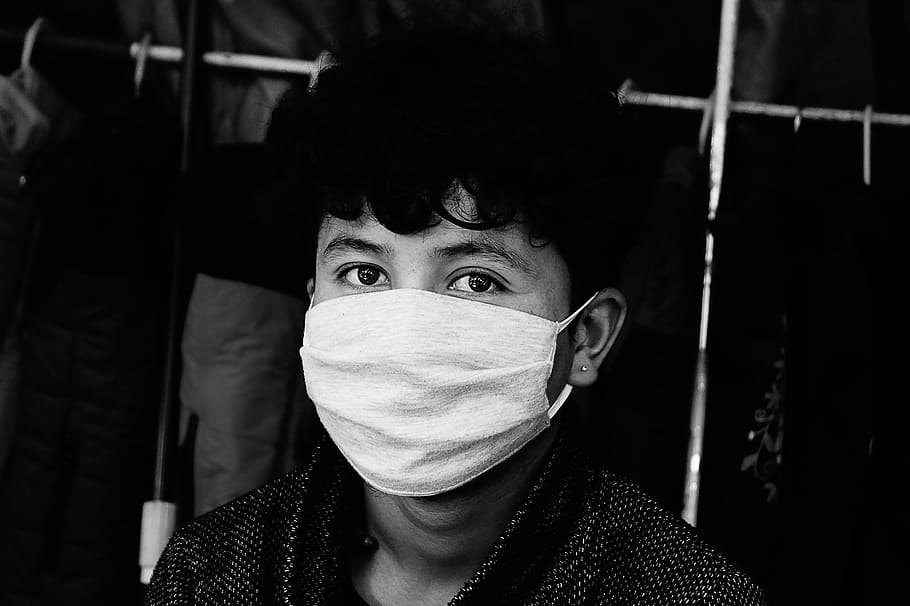Biosecurity expert Professor Raina MacIntyre says a COVID-19 epidemic may cause significant disease for six to 12 months
A new hastag is trending on Twitter, alongside #COVID-19, #pandemic and #toiletpapergate.
It’s #flattenthecurve, the idea that while a large volume of cases may be inevitable, the more distributed they are over time, the less likely an epidemic is to catastrophically overload the health system.
Professor Raina MacIntyre, head of biosecurity at the University of NSW’s Kirby Institute, said “flatten the curve” was a good way to communicate what our domestic strategy should be, amid what the WHO has finally called a pandemic.
“It’s a simple way of explaining that non-pharmaceutical measures like social distancing, travel restrictions, contact tracing and case isolation work,” she told TMR. “And that’s how they work: they work by delaying the peak and reducing the total number.”
Professor MacIntyre said she had cancelled all her conferences and all her travel. Large-scale events including many medical meetings have been called off around the world.
Though it has announced a $2.4 billion plan to boost capacity in all areas of the health system, the government has so far not advised the general public to, for example, work from home if possible, avoid shaking hands and reconsider public gatherings.
“At this stage of the game, those are voluntary things,” Professor Macintyre said. “People can think about their own risks and make decisions for themselves about what they’re going to do around social distancing in their lives.
“The fact is most people are going to have to change the way they live for the medium term for this epidemic. It’s something we need to get our heads around: we have to change the way we live.
“It might be wise to stop shaking hands, to ask people who are coming for dinner ‘is anybody sick? If you’re sick, please don’t come.’
“I think the government will communicate that when it’s a formal mandated decision, when it’s going to be that schools are going to close or public transport is cancelled. But at the moment it’s a voluntary thing.”
Professor MacIntyre was speaking yesterday afternoon, just before Prime Minister Scott Morrison took a break from the sensible and cautious advice his government had been delivering, and told everyone to “go to the footy at the weekend”, as he planned to do.
[UPDATE: After this story was published, Mr Morrison announced that, on the advice of medical officers, gatherings of more than 500 people should be suspended. From Monday. After the footy.]
Professor MacIntyre said the number of cases was increasing fast, and by April we might have 1000 or more. Soon everyone would be, or at least know someone who was, affected.
“The epidemic may peak in Australia around June, is my guess, but it may be earlier, it may be later,” she said. “But the whole thing, in terms of having substantial disease around, may last six months to 12 months.”
She said the government’s package announced on Wednesday, which will increase testing capacity, cohort patients into dedicated clinics and provide Medicare for telephone consults, was “very good news”.
“I think the use of technology to try and overcome some of the issues is the smart move,” she said. “It’s overall a very good package.
“One thing I hope the government is considering is financially compensating casual workers or contract workers who are going to be unable to work if they’re in quarantine or their workplace is shut down.
“We saw the guy who was waiting for the result of his coronavirus test and was told to self-isolate, but he went to work at one of the hotels in Hobart because he needed to pay the rent. So from a disease-control perspective, you have to make sure that the people who are unable to work, especially if they’re casual workers or contractors, are compensated so that they don’t break quarantine or isolation and they aren’t driven into homelessness.”
Shadow health minister Chris Bowen told the ABC he welcomed all the measures in the government’s health package, which were based on the best medical advice – except that the telehealth provision should be “broader in scope”.
“They have extended the Medicare rebate for telehealth … But it’s quite a limited group that now applies to,” he said. “I think it should apply much more broadly. There are people with concerns all over the country, and not just confined to older people or vulnerable groups, and I think it would be in the best interest of all to avoid unnecessary or avoidable trips to the doctor and all the risk that that entails in the waiting room.
“I was expecting a much bigger announcement when it comes to the telehealth rebate than what we’ve got today. Also, while I support the fever clinics and I don’t underestimate the complexity in getting the medically trained personnel and the locations, I do think six weeks is too long to wait.”
Mr Bowen said he had been suggesting to the government that it work with the RACGP and other colleges to recruit retired medical practitioners temporarily back into the workforce.
AMA president Dr Tony Bartone said what COVID-19 would eventually cost was “clearly an evolving issue”. But as long as everyone worked to flatten the curve, the amount budgeted so far would have a big impact.
“If we’re able to significantly contain the virus in its early phase – that’s the spread of the virus in the community – and we’re able to spread that load over a longer, softer period of time in terms of the impact on the health system, the announcement today will go a very long way to meeting a lot of that demand,” he said.






